#Overstayers
Explore tagged Tumblr posts
Text
Visitor Visa: Genuine Visitor Requirement
Whether you’re dreaming of exploring the historic streets of London, reconnecting with loved ones, attending a business meeting, or enjoying a cultural festival, a UK Visitor Visa is your essential gateway. But navigating the UK’s complex visa system can be daunting, especially with strict rules around proving your intentions and eligibility. In this article, we will walk you through what it…
#best#Best Immigration Solicitors London#Business Activities#Credibility#DJF Solicitors#Family Member#Financial Evidence#Genuine Intention to Visit#Genuine Visitor#Grounds for refusal#High Net Worth Immigration#Home Office#Home Office Updates#Immigration Policy#Immigration Rules#Lexvisa#london#London Immigration Solicitors#Overstayers#Permission Application#Prohibited Activities#Solicitors#Success#Successful Application#Temporary Admission#UK Immigration#UK Immigration Advice#UK Immigration Solicitors/ Lawyers#UK Visa#Visit Visa
0 notes
Text
0 notes
Text
even w no1 following me on here i feel watched n antsy n as if if i talk 2 much then ill b seen n judged or w/e or any1 who visits this blog via my gifsets will see me talking (as if their opinion of me even matters)
#tht coupled w me wanting 2 keep snacking n hatred of my body n i feel petrified jus existing its so tiring its all so tiring i feel trapped#within myself. in this body tht i wish would b shot n ripped 2 shreds. in this unease tht surrounds me. in this life in which ive overstaye#delete later
0 notes
Text
Visa Overstayers Australia | Immigration Solutions Lawyers
Looking for reliable advice on Australian immigration law? Our team at Immigration Solutions Lawyers in Sydney provides accurate and easy-to-understand guidance to help you navigate this complex area of law. Contact us today to learn more!
0 notes
Text
Can I take a visa/entry in the UK after a complete 10 years banned?
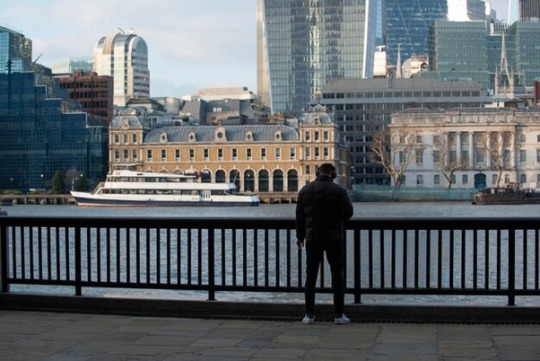
If you were subject to a 10-year immigration based on deception or misrepresentation or for overstaying, once the time becomes spent, you will be entitled to apply for a new visa and entry to the UK. However, in any future application you must disclose that you were subject to an immigration ban.
If you are looking to apply for a new visa to the UK. My Legal Services have vast experience and expertise in UK immigration and EU law matters. They are based in the heart of Central London, Bond Street.
Original Source:- https://www.quora.com/Can-I-take-a-visa-entry-in-the-UK-after-a-complete-10-years-banned/answer/My-Legal-Services-1/log
#Unmarried Partner Visa#local immigration solicitors#Overstayers UK#British Naturalisation#Skilled Workers Visa
0 notes
Text


“We were only young. We had no examples, but we knew we had a right to be here.”
To clarify, in keeping with the views of the Polynesian Panthers themselves, Maori are included under the term ‘Pacific Islanders’. Unless stated otherwise, all references to Pacific Islanders in this text includes Maori. In the words of Tigi Ness, “We are living on the biggest Pacific Island.”
While many of you may not have heard of the Polynesian Panthers, hopefully you will have heard of the Black Panthers, a now (arguably) disbanded African American revolutionary left-wing organisation that worked for the self-defence of black people. Over time, the Black Panthers’ initial stand against police brutality in black neighbourhoods became a call for staunch black nationalism for all African Americans. The strength of the movement spawned generations of strong African Americans, to whom the Panthers provided basic human rights—such as their free breakfasts and education for children programmes—and, importantly, personal strength and pride in their heritage.
The Polynesian Panthers group was founded on 16 June 1971, borne from a large mix of Pacific Islanders, including Samoans, Tongans, Niueans and Maori. Tigi Ness, a New Zealand-born Niuean, describes the founders as “former gang members and students”, mere “teenagers in response to the racism we were experiencing in Auckland”. The majority of the founders were high school students, not university students or adults; most were from working class families and inspired by Black Panther founder Huey Newton’s concept of black unity.
The Panthers were mostly first generation New Zealanders. Their parents reaped some of the benefits of New Zealand’s economic boom in the 1960s, when they were encouraged to migrate to New Zealand to provide cheap labour. The government turned a blind eye to expired working visas and illegal migrant workers until the production boom dwindled in the mid-1970s. Although wages were higher, living conditions were often poor and Pacific Islanders were often subject to racism and police harrassment. The fortunes of many Pacific Islanders, who had uprooted their families and lives to work for wages less than the average New Zealander, took a turn for the worse as the economy started on a downward spiral. The government aggressively targeted overstayers—that is, people who illegally remained in the country past their work visa, or failed to get one in the first place—and these first generation New Zealanders were at risk of being sent back to a country, and society, they never knew. The problems many Pacific Islanders already faced in New Zealand were only compounded by this episode in New Zealand history.
On top of fears for their families, many Pacific Islanders lived in dangerous neighbourhoods, with many young people feeling their only options for survival were to join a gang or simply hide at home. The Panthers formed to provide the young with another option. They were searching for something positive—the life their families moved to New Zealand to create, as opposed to the oppressive policies and poverty keeping their cultures and communities downtrodden.
The reasons for joining the Panthers were relatively diverse. Some, like Will Ilolahia, were looking for a better way. Will remembers being a member of the gang ‘Nigs’ (because they were often called ‘niggers’), but he was trying to find something more meaningful in life. He began reading American books about the Black Panthers and soon “woke up”. Some chose the Panthers initially for its more aesthetic appeal—as Tigi Ness did—with “black leather, berets, Island shoes, raising their fist”. Once initially formed, the Panthers knocked on doors of people they felt had the same ideals.
The Polynesian Panthers challenged discriminatory practices in areas such as unequal pay, unsatisfactory working and housing conditions, education, police harassment, legal rights and prison visits for families. The extent to which the Pacific Island communities felt these injustices is shocking. Before the Panthers, it was often the norm for Pacific Islander houses to have only cold water. In addition to minimal pay, they were expected to work through all breaks, including unpaid lunch breaks, to keep their jobs.
Police harassment of Pacific Islanders was common from 1974 to the late 1980s. Some were picked up by police and those who weren’t holding papers showing their legal status in New Zealand were arrested. The extent of police harassment was such that Pacific Islanders made up 86 per cent of all prosecutions for overstaying. Police began ‘dawn raids’, knocking down Pacific Islanders’ doors in the early hours of the morning, demanding passports from all occupants. In response, the Polynesian Panthers began “dawn raids” of politicians’ houses by banging on the door with floodlights, demanding to see passports, and running away as politicians came to the door. It only took a few weeks before the Polynesian Panthers effectively stopped all dawn raids on Pacific Islander communities.
Much of the Polynesian Panthers’ work was in empowering the Polynesian community to raise their quality of life. The Panthers organised strikes in factories with substandard working conditions, and the Tenants Aid Brigade (TAB) boycotted and protested outside sub-standard housing. To combat failing grades at school, the Panthers organised homework centres—locations simply with tables, chairs and a quiet space so students could do their homework. Many Pacific Islander families simply did not know their rights or entitlements, and the Panthers ensured that knowledge was passed on and utilised.
The Panthers provided much needed assistance to Polynesians caught up in legal wrangles. Pamphlets were distributed advising individuals of their rights, such as being able to ask police whether they were being arrested, and what for. Legal aid was often provided to individuals needing court representation. One of the most successful initiatives was organising buses to prisons, so families could visit, and further support was provided to prisoners who had no family on the outside. While this was a free service, prisoners gifted the Panthers substantial amounts of the money earned in prison to show their gratitude.
The Panthers, along with many Pacific Island youth, also supported Maori causes and political events, such as the 1975 Land March and Bastion Point occupation. The Panthers became adept at political lobbying, which became apparent during the dawn raids in the 1970s, and the Springbok Tour of 1981. Tigi Ness was jailed for his actions during the tour, but was eventually released without charge. Will Ilolahia, along with Hone Harawira and others, was on trial for two years, only getting off the charge after Bishop Desmond Tutu flew in to be a character witness.
Many of the Panthers voiced concern that the government’s way of control was to divide and conquer the minorities, and as a result they banded together to fight the threat to their cultures and communities. Miriama Rauhihi-Ness remembers a time when being Maori and embracing Maori culture was “literally… cut out of you at school, all of it”. She cites the 1975 Land March as a turning point, where New Zealand society began to be more accepting of Maori culture, both within Maoridom and in Pakeha society. Nowadays, all Panthers encourage Maori and Pacific Islanders to remain strongly banded together as whanau, with pride in their heritage.
#aotearoa#Black Panther Party#Māori#Polynesia#Polynesian politics#poly#anarchism#anarchy#anarchist society#geopolitics#resistance#autonomy#revolution#communism#anti capitalist#anti capitalism#late stage capitalism#daily posts#libraries#leftism#social issues#economics#economy#anarchy works#anarchist library#survival#freedom#zoe reid
18 notes
·
View notes
Text
The Kiwi kid who faces being deported to a country he’s never been to
Daman was born in June 2006 - just eight weeks after a law change which removed automatic citizenship from all babies born on New Zealand soil. So because his parents were overstayers, he immediately became one too - which means he’s never been here legally.
na ezt olvasgassad, kis szépsége a dolognak, hogy az immigrációs miniszter elutasította a kérelmét, úgyhogy valószínűleg deportálják indiába ahonnan ő nem is származik.
A kedves szülei, akik maguk teljesen tudatosan szegik a törvényt két évtized óta, úgy kibasztak a legénykével, mint a vöcsök. (és 18 évig folyamatosan beleszartak abba, hogy nincs státusza a gyereknek, miközben a 2006-os törvényi változás előtt született tesó újzélani állampolgár by birth). Az pl. nem derül ki, hogy indiai állampolgársága van-e neki, mert ha nincs, akkor indiába sem mehet, mert ott ugyanúgy nem tűrik az overstayereket, mint NZ-n. Nem annyira értem, hogy hogy működött az iskolába járás, pl. emlékeim szerint nekünk kellett igazolni a gyereket amíg nem volt állampolgár, hogy van olyan vízuma amivel jár neki a helyi állami iskola, ez a koma meg elvégezte a középiskolát úgy, hogy _semmilyen_ vízuma nincs és nem is volt soha (úgyhogy se jogsija, se bankszámlája nem lehet, a körzeti orvoshoz se tud elmenni, az egész wtf?). ÉS ez nem csak az iskolának, de a bevándorlási hivatalnak se tűnt fel soha.
Ész megáll baszki.
16 notes
·
View notes
Text
Ich schaue das Quadrell nach und bekomme schon bei der ersten Frage Fenstersturzfantasien.
Jauch fragt nach den 220.000 Ausreisepflichtigen und wieso die noch hier sind.
Wenn er seinen verdammten Job gemacht hätte, wüsste er, dass "Ausreisepflichtige" nur zu etwa 60% abgelehnte Asylbewerber sind. Viele von ihnen sind Overstayer, also Leute, deren Visum abgelaufen ist ([ehemalige] Studierende, Arbeitnehmer, Touristen).
Außerdem haben vier von fünf Ausreisepflichtigen eine Duldung. Sie wurden also zwar aufgefordert, das Land zu verlassen, können aber aus materiellen oder rechtlichen Gründen nicht abgeschoben werden.
Stand Dezember reden wir von 42.000 Personen, die "unmittelbar ausreisepflichtig" wären. Also Menschen, die ihre Duldung nicht verlängert haben. Ob die alle noch im Land sind, oder wie viele Deutschland bereits still verlassen haben, weiß keiner.
Leider stellt Scholz das nicht richtig, sondern läutet den Überbietungswettbewerb ein, wer den härtesten Kurs gegen die illegal Aliens fährt.
5 notes
·
View notes
Text
Dawn Raid (🇳🇿 Aotearoa New Zealand)
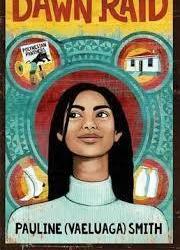
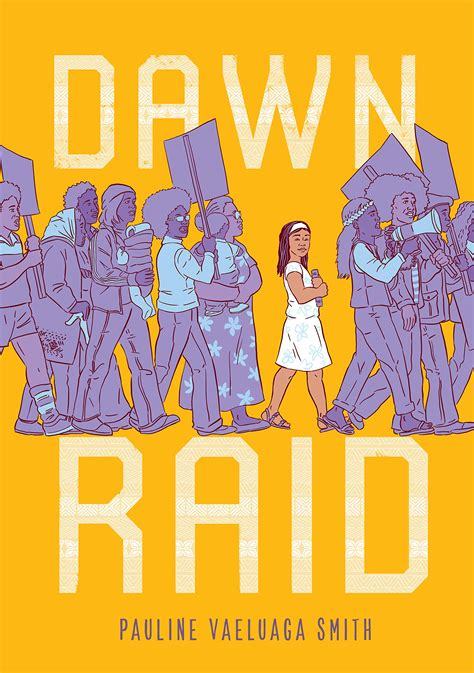
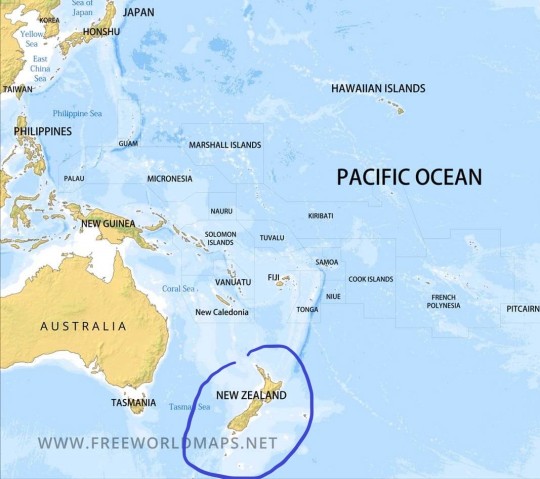

[image 1: book cover, showing a smiling brown girl with long straight black hair, surround by bubbles with items: a Polynesian Panthers protest, a single-story house, go-go boots, and milk bottles; image 2: book cover, US version, showing a preteen brown girl walking among protesters in 70s fashion carrying signs; image 3: a map showing Aotearoa New Zealand, southeast of Australia; image 4: a photo from 1971 showing Polynesian Panthers carrying signs like "Power to the Oppressed"]
Dawn Raid
Author: Pauline Vaeluaga Smith
World challenge read for 🇳🇿 Aotearoa New Zealand
This middle-grade book follows a young part-Samoan girl in New Zealand as she learns about and meets the Polynesian Panthers, a group inspired by the US Black Panthers who fought discrimination against Islanders. The Dawn Raids were carried out by NZ police, racially targeting Pacific Islanders for being overstayers, even when they weren't. I love the Panthers' effective counter tactic of "raiding" politicians by making noise and light outside their houses in the early AM before speeding away.
The book is part of a New Zealand history series, so much of it is spent depicting life in the 70s for young readers, like go-go boots, milk run jobs, and the opening of New Zealand's first McDonalds. But Sofia also learns about the Panthers and experiences firsthand a terrifying raid unfairly targeting her family. There are cute illustrations throughout the book.
I didn't learn much more about the Panthers than I had already read in a few articles, which was disappointing, but this is obviously an "intro" book for young readers. The author also notes that the kids here are given far more leniency than they would have ever had in a traditionally strict Samoan family. Still, this was an entertaining quick read with immersion into 1970s Aotearoa, recommended especially if you have never heard of the Dawn Raids/Polynesian Panthers and want an easy intro!
★ ★ ★ 3.5 stars
Genres: #middle grade #historical
Other reps: #immigrant
#book review#aotearoa#new zealand#booklr#world reading challenge#middle grade#historical#immigrant#activism#social issues#polynesian panthers#oceania#pacific islander
4 notes
·
View notes
Text
enha as twenty first century american teenager stereotypes (up until 2024)
I LIV LAF LUV playing association with enhypen because they're my interesting little stinka-butts who, in my opinion, are so frozen in this whole kpop ordeal and i need them BROKEN FREEEE
Hybe, babes, let them explore the real world and interact with idols and people who don't gaf about their latest random single release and just wanna vibe w them I BEG
+ Yang Jungwon aka "Maicah"
Maicah Jungwon Yang is the middle man of your class. He's involved, he's energetic with the dude-bros, and he's on the JV basketball team. He only has okay grades but is somehow on Student Council. He's friends with a ton of the Varsity boys, and he's got lots of cool friends. Jungwon is super bubbly but he's really put together. His rl engagement in school and enha leadership compels me to think he's responsible enough to be in Student Council but bros also just an athlete. He'd also probs be on the track team as a 100m sprinter or smth. He'd definitely have a lot of friends but he might have a surprisingly unconventional bestie. Maicah wears the same two pairs of nike sweats along with Yeezy slides and a black hoodie. If it's cold, Maicah brings a Spiderman blanket to school.
+ Lee Heeseung aka "Ethan"
Ethan is the ultimate trend maxxer of whatever Bay Area high school you have imagined. He wears string earphones, never sporting shorts, and always has a damn beanie on. Absolutely not in sports-- is THE arts student. He's on the junior group of horn instruments in band, probably plays the trumpet, and isn't all that great but he's a fast learner. Hee would be top 30 in his class, but would most likely prioritize his rising Sound Cloud presence post-Grad. Doesn't date but he has a lot of younger friends, flirts with girls two years younger than him but also maintains a homoerotic friendship with his childhood friend in college who's like a year older than him.
+ Park Jay aka "Jay"-- DUH
Jay is the batman. He's farms or surfs (depending on what region you imagine we're in the context of) by day, and is in a garage band by night. He has a super duper close knit friend group of equally spunky guys. Has absolutely no female friends-- not out of misogyny or anything but bro is just such a dude idk. He's pretty smart, def a AP Chem warrior but stinks at stem. His focal point is the school guitar group. He probably gets his community service hours working with the lunch ladies. Jay is charismatic and super sweet-- but he probably deals with anger issues and was def that kid in behavior management during elementary. Despite his emo TM status-- Jay wears the fluck out of his chino + Sperrys combo.
+ Sim Jaeyun aka "Jake"-- DUH
He is the captain of the Varsity Soccer team. Jake is popular as a mf; has a big friend group, dates around, is loved by the teachers, and most of the school appreciates his mega vibes. Think Jeremiah from The Summer I Turned Pretty. Jake probably gets zesty allegations cause he wears lots of jewelry and paints his nails but he doesn't mind cause trust-- he's pulling every female bro-lover in the COUNTY. He's super duper competitive and is a strict captain, which is the only reason why someone'd have a problem with him...but he makes up for it by being a beast on the field. He's also on Honor Roll, cranking his Class with a 4.6 GPA and Salutatorian status. He's a chronic overstayer at school with him being in sports and academic clubs year round. Jake probably has some weird connections with Parker which throw people off like Junior year. Chronic Croc wearer. Bro's committing to Notre Dame for Soccer.
+ Park Sunghoon aka "Parker"
The hottest loser on campus fr fr. He's well known for being the numba one hallway crush but bro has no school friends so everyone kinda just assumes he's a little bit of a bitch (in the best way possible). He never stays longer than he has to but he's a hard worker and the history teacher loves his compassion for AP Gov.. He's a club Volleyball player outside of school but he's not in school athletics (he's got connections to the Athletics Dir. tho). He's always at school early to use the weight room and he's an avid lean pump master poster on IG. Hoon was super isolated as a kid so I imagine that Parker would probably have a hard time being social with just normal kids (Parker's homeschooled in elementary for the plot). He was probably chubby in middle school and then had a gigantourous glow up freshman-sophomore year: 6'0, lean muscle, "clean guy" aesthetic. Guys def wanna be him but they're jelly cause their girlfriends are obsessed. Closet gay but no one knows until a random IG story during college where he takes a pic w his boyfriend or something idk. Wears Jordan 4s.
+ Kim Sunoo aka "Sonny"
The typical friendly gay bestie minus the obnoxious Netflixed exaggerations (i.e. loud and super sassy). Just think about the token feminine gay guy at your school-- he probably has a group of girl friends, is kinda introverted lwk, wears either super outdated 2018 IG fashion or is the most fabulous Hollister warrior. He definitely has a weird situationship with one of the popular guys-- top athlete, unlikely to be friends with him but is anyways...you know the shabang. Sonny's pretty witty, pretty scholarly-- excels in stem but has a soft spot for English. He probably listens to Ariana Grande and is a Olivia Rodrigo die-hard. Sonny probably bakes, too. Overall, he's on the low but anyone knows that unprovoked, that mf is loud sometimes. Will not hesitate to beat a bitch up too.
+ Nishimura Ri ki aka "Nico"
The skater boi TM, bahaha. Just kidding, but fr, I think American Ri ki would skateboard. Like-- in an East Coast way not a West Coast way if you catch my drift. He's a New Yorker at heart-- going to a crowded arts school somewhere idk. He's constantly outdoing himself with the fits-- the girls love it. He's can be shy but has a knack for being a trouble maker-- probably went to special group as a kid, the guy with ADHD (not that that's a big deal but ik we all got that one guy in class that's hyper to no end, n to me, that's ri ki). Nico's got a couple friends, plays basketball in his free time, and his specialty is, of course, dance. He leads the department by a long shot so everyone either loves him or hates him. Nico isn't afraid to be flamboyant or outgoing (as Ri ki is competitive and a little bit of a diva) but can come off a little high strung sometimes.
11 notes
·
View notes
Text
UK Deportation & Removal Orders
In UK immigration law, the terms deportation and removal are often misused interchangeably. However, each carries a distinct legal meaning with far-reaching implications. Understanding the key differences between these two mechanisms is essential for any individual facing potential enforcement action from the Home Office. This comprehensive guide aims to demystify the legal frameworks governing…
#10 year ban#Adult Dependant Relative#Appendix FM#Appendix FM-SE#best#Best Immigration Solicitors London#Business Immigration Solicitors#Challenging Deportation#Complex Immigration#Criminal Offence#David J Foster & Co Solicitor#Deportation#Deportation Case#Deportation Order#Deportation Orders#DJF Solicitors#Good Character#Home Office#Home Office Updates#Illegal Migrants#Illegal Worker#Immigration Act 1971#Immigration Policy#Lexvisa#london#London Immigration Solicitors#Overstayers#Refusal on the grounds of overstaying#Removal#Removal Notice
0 notes
Text
The National Socialist Japanese Workers' Party (国家社会主義日本労働者党, Kokka Shakaishugi Nippon Rōdōsha-Tō) is a small neo-Nazi political party in Japan. It is headed by Kazunari Yamada [ja], who maintains a website and blog which includes praise for Adolf Hitler and the September 11 attacks.[2][3] Pictures of Yamada, a Holocaust-denier, posing with Cabinet minister Sanae Takaichi and LDP policy research chief Tomomi Inada were discovered on the website and became a source of controversy;[4][5] both have denied support for the party.[2][3]
In the 1990s, the group campaigned for the expulsion of visa overstayers in Japan.[6] The NSJAP campaigns against what it believes to be Jewish influence on both the world stage and in Japan's national affairs. The party advocates the abolishment of the monarchy and the restoration of the shōgunate, as it believes that the Imperial House of Japan became subservient to international Jewry following World War II, and believes that the shogunate is the Japanese equivalent of the Führer principle. The NSJAP also campaigns against economic refugees, race mixing, and Freemasonry. The party also campaigns for what it calls "corporatistic autarky".[citation needed] The NSJAP is also Turanist,[1] anti-capitalist, anti-communist, antisemitic, anti-Zionist, anti-Korean, anti-Chinese, and anti-American.[citation needed]
9 notes
·
View notes
Photo

Welcome overstayer
‘This Eurasian hoopoe decided to overwinter in our village rather than migrate to Africa, and could be regularly seen probing our lawn for worms and other tasty morsels.’
Photograph: Keith Allen
23 notes
·
View notes
Text
Visa Overstayers Australia | Immigration Solutions Lawyers
Looking for reliable advice on Australian immigration law? Our team at Immigration Solutions Lawyers in Sydney provides accurate and easy-to-understand guidance to help you navigate this complex area of law. Contact us today to learn more!
0 notes
Text
The passport is being heldup because not all the checks were satisfactorily completed?
A father says he has been "abandoned" by UK authorities in his attempt to bring his newborn baby back home.
Raj Gill, from Grays, Essex, arrived in Cyprus two days before his son was born by surrogacy on 29 January.
But he is waiting for his child's British passport to be issued and his temporary visa for Cyprus is due to expire on 26 April.
The Home Office said passports were not issued until all checks were "satisfactorily completed".
The office of the Conservative MP for Thurrock, Dame Jackie Doyle-Price, said it had made an "urgent inquiry" with the government over Mr Gill's case.
The 49-year-old said he completed the documentation for his son in the days following the birth, but that "nobody has looked at my application since 12 February".
He said he "desperately" needed to get the 11-week-old back to the UK for immunisations.
'What happens to my children?'
"It's stressful," he said.
"Unfortunately, as there is no-one else to look after [my son], I have no choice but to remain in Cyprus despite knowing that I will be classed as an overstayer from 26 April."
An overstay would mean Mr Gill risks being fined, prosecuted or even jailed.
He added: "If that happens then what happens to my children?"
Mr Gill, who has taught at Lee Chapel Primary School in Basildon for the past 18 years, said he looked to have a baby by surrogacy after not finding a partner.
"Being a primary school teacher myself, I love my children and I thought I wanted some of my own," he said.
The Home Office said it would not comment on individual passport applications, but said additional checks ordinarily take place to confirm a child's nationality, before an emergency travel document is issued.
#UK#cyprus#Anti surrogacy sunday#Surrogacy exploits women#Babies are not commodities#Surrogacy is human trafficking#Why couldn't a man with a steady job find a partner by 49?#Who is going to take care of the baby while he's teaching?
5 notes
·
View notes
Text
Avoiding Business Visa Overstay: Best Practices for Responsible Travel
While traveling on a business visa, one might be so engrossed in meetings, deals, or site visits that visa expiry goes unnoticed. But avoiding business visa overstay is not just about avoiding fines—it’s about protecting your travel history and professional reputation.
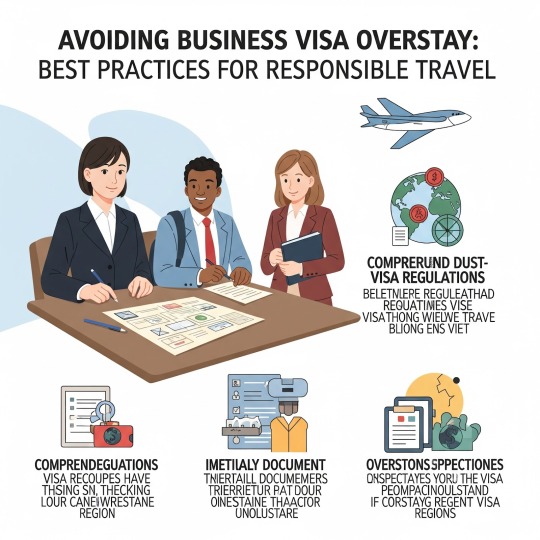
What Constitutes a Visa Overstay?
Overstaying occurs when a person remains in the country beyond the date permitted on their business visa. Even a single day of overstay can have serious consequences.
Why Avoid Business Visa Overstay?
Immigration Violations
Fines and Legal Action
Blacklisting or Future Visa Denial
Harm to Employer’s Reputation
Tips for Avoiding Business Visa Overstay
Set Alerts: Use mobile apps or calendars to remind you of expiry dates.
Keep a Copy of Entry Stamp: Match it with visa validity.
Understand the Visa Rules: Some countries count days differently (entry vs. exit dates).
File Extensions Early: If you need to stay longer, don’t wait until the last minute.
Exit and Re-enter Only if Permitted: Some visas allow single entry only.
FAQs
Q1: What happens if I overstay my business visa? You may face fines, deportation, and travel bans.
Q2: Can overstaying affect future visa applications? Yes, it may result in denials or additional scrutiny during interviews.
Q3: Are all overstays treated equally? No. A few days might be forgiven with valid reasons, but chronic overstayers face harsh penalties.
Possible Statistics
Overstays account for nearly 40% of undocumented immigration in some developed countries.
About 1 in 5 business travelers admit to not checking their visa expiry dates before departure.
Reference: Pew Research Center – Immigration
Conclusion
Whether you're attending a conference, signing a deal, or launching a product abroad, avoiding business visa overstay is your responsibility. Respecting visa terms protects your access to future travel and keeps your business reputation intact. Always plan ahead to avoid the risks associated with business visa overstay.
0 notes